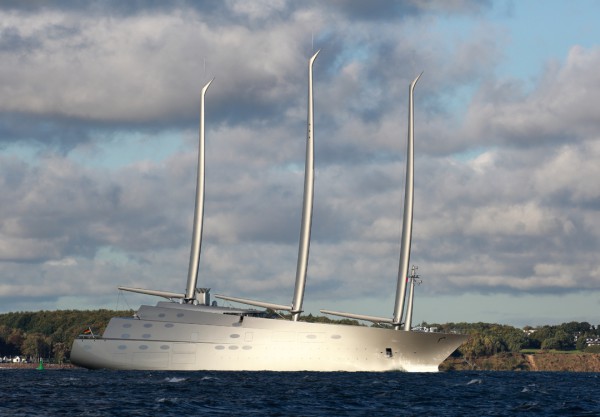An end to Russian new builds?
How an amendment to Council Regulation (EU)2022/ 328 could have a more serious impact on the superyacht market than sanctions…
In essence, EU legislation which has been amended by Regulation 328 puts a near-total halt to the creation and exportation of certain types of machinery and technologies to Russian entities that could feasibly be co-opted to support the Russian war effort in Ukraine. In this sense, it is more far-reaching than the sanctions regime because it is not limited to sanctioned individuals and as the Regulation is framed it seems clear that superyachts will fall within its scope. It should be noted that there are exemptions available for contracts that were signed before 26 February 2022, provided that the application for the exemption has been submitted before 1 May 2022.
Article 2 of the Regulation, which stipulated the extent of the regulation’s application has been replaced by the following:
“It shall be prohibited to sell, supply, transfer or export, directly or indirectly, dual-use goods and technology, whether or not originating in the Union, to any natural or legal person, entity or body in Russia or for use in Russia.”
Annex VII of the Regulation outlines some of the goods and technologies that are now to be included within the prohibition and, therefore, provides evidence as to why this is likely to impact the superyacht industry. “Vessels” and “Marine Engines” are amongst the items captured by the prohibitions imposed.
It could be argued that if the regulation was interpreted in a black and white manner that the corporate veil, or indeed the fact that the vessel was not intended for use in Russia, may protect future superyacht projects from being impacted. However, given how the sanctions are being interpreted it seems more than likely that the regulation will be applied in the broadest sense to include any individual or entity that could theoretically answer the call of Vladimir Putin and have their asset co-opted for dual-use as a machine of war, or in any other way that might support the war effort.
It should be noted at this juncture that, of course, superyachts are not the only products affected by the regulatory update. Aviation assets are also captured and arguably pose a more imminent threat to the security of Ukraine when viewed to the visor of Regulation 328.
“In our view, it is clear that Regulation 328 is intended to capture superyachts” explains Adam Ramlugon, partner and co-head of the Yacht and Luxury Asset Group at law firm Hannaford TurnerLLP.
According to Ramlugon, the EU authorities are likely to apply purposive interpretation to Regulation 328. In other words, it will be interpreted in the context of what it is trying to achieve and, therefore, it is much harder to rely on semantics and interpretation to find loopholes. Looking at it through this lens, Regulation 328 is intended to stop yachts and other products from being used to support the war and, therefore, the scope of the legal and natural persons deemed to fall within the scope of the Regulation will be read widely.
The law also seemingly goes further than just impacting future new build projects in that it further includes a provision for “technical assistance”, which suggests that the regulation covers any post-delivery assistance, service and support (warranty work, refit and so on).
Where the contract was completed before 26 February, there are provisions for the project to be completed, so long as the supplier obtain permission before 1 May from the relevant authorities.
“…the competent authorities may authorise the sale, supply, transfer or export of the good and technology referred to in paragraph 1…for non-military use and for a non-military end-user, after having determined that such goods or technology…are due under contracts concluded before 26 February, or ancillary contracts necessary for the execution of such a contract, provided that the authorisation is requested before 1 May 2022.”
“This does leave open the question of whether and to what extent the, for example, construction of a pleasure yacht will be so authorised as this is a matter within the discretion of the relevant competent authority,” continues Ramlugon. “In this regard, we would recommend that advice is sought from local counsel in relation to any such application for authorisation.”
And yet there may be additional layers of complexity to this. Say for instance, that a superyacht was being built in Italy for a non-sanctioned Russian buyer and the contract was signed before 26 February 2022. It is feasible that the relevant Italian authorities provide the necessary permissions for the project to continue. However, given that the engines for the project are coming from Germany, it is perfectly feasible that the supplier will not be granted the necessary permission. Given how complex superyacht builds are, one can see how this might be a problem.
While the exact application remains to be seen, at its broadest application this regulation could in essence put a stop to the production of superyachts for all Russian buyers in the foreseeable future. However, it should be noted that with the demand for superyachts still at an incredibly high level that it may not necessarily have as profound an impact on the market as it may have done in years gone by.
Profile links
NEW: Sign up for SuperyachtNewsweek!
Get the latest weekly news, in-depth reports, intelligence, and strategic insights, delivered directly from The Superyacht Group's editors and market analysts.
Stay at the forefront of the superyacht industry with SuperyachtNewsweek
Click here to become part of The Superyacht Group community, and join us in our mission to make this industry accessible to all, and prosperous for the long-term. We are offering access to the superyacht industry’s most comprehensive and longstanding archive of business-critical information, as well as a comprehensive, real-time superyacht fleet database, for just £10 per month, because we are One Industry with One Mission. Sign up here.
Related news
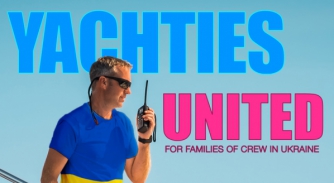
Yachties United for Ukraine gains traction
The support group has been set up to help with the allocation of information, funds, and shelter for Ukrainian crew…
Crew
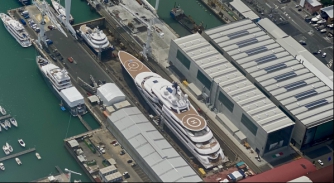
Looks like Putin’s, smells like Putin’s…it’s probably Putin’s
Scheherazade has been pictured in Carrara, Italy. We consider how proof that a superyacht is not owned by Putin constitutes no proof at all.
Fleet
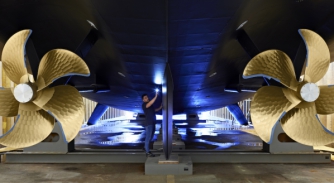
Heesen board members resign following Ukraine crisis
The departure of the Russian board members has stoked rumours of the shipyard being discreetly put up for sale
Business
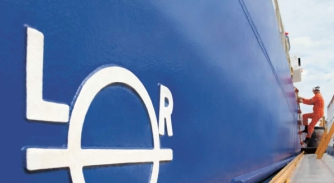
Lloyd’s Register withdraws services to Russia
Maritime professional services organisation disengaging from the provision of all services to Russian owned, controlled or managed assets or companies
Business
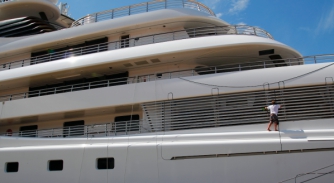
Saltwater Recruitment suspends work with Russian owned yachts
As the list of recruiters taking a similar stance grows, the attention remains with crew still working onboard Russian owned vessels
Crew
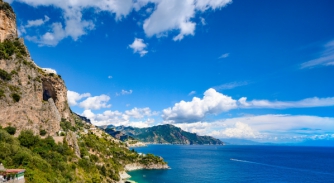
Italian builders issue statements on order book impacts from Ukraine Crisis
The official statements from Ferretti and Sanlorenzo affirm minimal exposure to sanctioned clients at present
Fleet
Related news
Yachties United for Ukraine gains traction
3 years ago
Lloyd’s Register withdraws services to Russia
3 years ago
Advice for crew on Russian-linked superyachts
3 years ago
Freezing not seizing
3 years ago
NEW: Sign up for
SuperyachtNewsweek!
Get the latest weekly news, in-depth reports, intelligence, and strategic insights, delivered directly from The Superyacht Group's editors and market analysts.
Stay at the forefront of the superyacht industry with SuperyachtNewsweek


